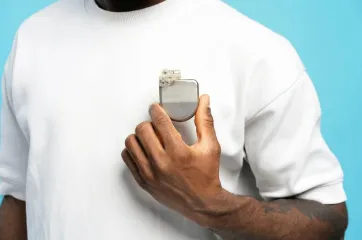
Critical Pacemaker Safety Alert: What Patients and Families Must Know
For those living with a pacemaker, peace of mind is essential. These life-saving devices regulate the heartbeat and allow millions to live fuller, healthier lives. But recent warnings from the FDA and device manufacturers have raised serious concerns about pacemaker safety, prompting urgent questions from Alabama patients and families alike.
At Nelson, Bryan, and Cross, we closely follow developments in medical product safety—especially when defects or malfunctions place lives at risk. If you or someone you love has a pacemaker, here’s what you need to know.
What’s the Risk?
Several reports in recent years have linked specific pacemaker models to potential hazards, including:
Battery depletion without warning
Insecure firmware or cybersecurity vulnerabilities
Lead fractures or dislodgment
Electrical malfunctions that can stop pacing altogether
These failures can lead to dizziness, fainting, heart failure—or even death.
In some cases, the devices were subject to FDA recalls or safety alerts, leaving patients unaware of the seriousness of the risk.
How Do I Know If My Pacemaker Is Affected?
Start by identifying the make and model of your pacemaker. This information is typically included in:
Your surgical implant documentation
The patient ID card you received after surgery
Your cardiologist’s electronic medical records
If your device has been recalled or issued a warning, your healthcare provider should contact you. But don't wait—be proactive and ask your doctor for verification.
What Are My Legal Rights If a Pacemaker Malfunctions?
If your pacemaker fails due to a known defect, you may have legal grounds to:
File a product liability claim against the manufacturer
Recover compensation for medical expenses, pain and suffering, or lost wages
Pursue wrongful death damages if a loved one passed away due to device failure
These cases are complex. Manufacturers often deny liability or settle quietly. That’s why having an experienced Alabama product liability attorney is essential.
Important First Steps
Seek immediate medical attention if you experience symptoms like irregular heartbeat, fainting, or shortness of breath.
Preserve your medical device (if explanted) and all related documentation.
Document your symptoms and medical visits in detail.
Contact an attorney before speaking with the device manufacturer or insurer.
What If I Was Never Warned?
Many patients never hear about device warnings or recalls until it’s too late. If your doctor or the manufacturer failed to inform you about a known risk, that failure may itself be grounds for legal action.
We Stand Up for Patients in Alabama
At Nelson, Bryan, and Cross, we’re committed to protecting those harmed by defective medical devices. You trusted the technology to keep you safe—and when that trust is violated, you deserve answers and accountability.
Contact us today for a free legal consultation. We’ll help you understand your rights and explore your next steps with compassion and experience.